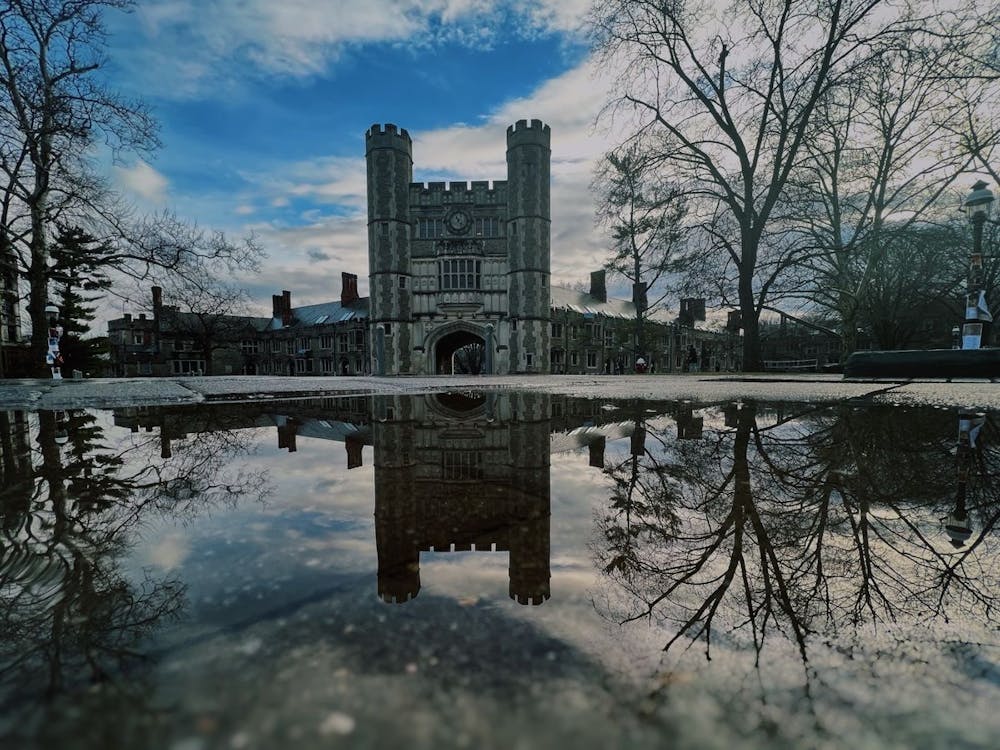The following is a guest contribution and reflects the authors’ views alone. For information on how to submit a piece to the Opinion section, click here.
Princeton University contributes to society through truth seeking: a pursuit necessitating academic freedom and institutional neutrality. Yet recent discussion of an upcoming Princeton course has prompted us, as leaders of the Princeton Open Campus Coalition (POCC), to reiterate the truth-seeking mission and how it functions on campus. To that end, the POCC contends that while present critiques of the course are within the bounds of open discourse, all Princeton professors are entitled to full academic freedom if they abide by the University’s academic standards and commitment to viewpoint diversity.
This fall, the Department of Near Eastern Studies (NES) is offering a course from Assistant Professor Satyel Larson, NES 301: The Healing Humanities: Decolonizing Trauma Studies from the Global South. Larson’s inclusion of one book — Jasbir Puar’s “The Right to Maim: Debility, Capacity, Disability” — has stirred controversy for its claims about the Israeli Defense Forces.
Earlier this month, Larson’s course began receiving critical attention from various news sites concerned about material in Puar’s book they deemed harmful and antisemitic. Last week, Israel’s Diaspora Affairs Minister wrote to Princeton’s President, Chistropher Eisgruber, suggesting that the book be removed from the syllabus and that “discriminatory” materials be excluded from all future Princeton courses. On Monday, the Princeton Center for Jewish Life released a statement urging Larson and the NES Department to “reconsider the impact of [the] text and to explore alternative ways to teach” because the book “could do real harm to Jewish students on our campus.” It is these objections that have raised critical questions concerning academic freedom and its place on Princeton’s campus.
Princeton University expects every professor to abide by the highest standards of scholarship in their discipline when conducting research and teaching students. Facts should be presented as facts, opinions as opinions, and all should be fair game for reasoned debate without viewpoint retaliation. We hope and assume this bar was met when Larson’s course was approved by the NES Department. Beyond this requirement, professors have complete freedom to construct their syllabi as they see fit.
Consequently, Larson is entitled to teach whatever books and topics she wants in her course, so long as students can form their own educated assessments of the material. This is true even if her choices are unpopular amongst students, governments, or other organizations. Academic freedom gives both students and professors the opportunity to contribute to the University’s mission of truth seeking, and that opportunity is extended to Larson. Princeton cannot justly compel changes in her syllabus based on objections to one book’s perspectives. Rather, the University exists to facilitate learning and discussion of controversial topics, which necessitates allowance of such texts in the context of honest academic exploration.
But this does not leave opponents of the course without alternatives. Organizations that see themselves as advocating for Jewish students and voices — or any other organization or individual, for that matter — are welcome to critique the content of Puar’s book, suggest alternative or additional readings that they believe would improve the course, and counterprogram by hosting speakers and reading groups. To be sure, Larson’s course and its opponents can function symbiotically to promote open debate in pursuit of truth on Princeton’s campus.
Danielle Shapiro is a rising junior and serves as the president of the Princeton Open Campus Coalition. Rebecca Roth is a rising senior and serves as vice president of the Princeton Open Campus Coalition. Marie Riddle is a rising junior and serves as secretary of the Princeton Open Campus Coalition. Benjamin Woodard is a rising junior and serves as treasurer of the Princeton Open Campus Coalition. They can be reached at drshapiro@princeton.edu, rdroth@princeton.edu, mriddle@princeton.edu, and bwoodard@princeton.edu, respectively.








